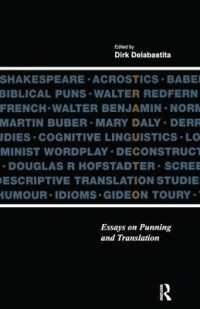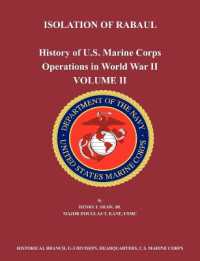- ホーム
- > 洋書
- > 英文書
- > Literary Criticism
Full Description
Reconfiguring and Appropriating Arabic, Persian, and Indic Literary Traditions in Seventeenth- and Eighteenth-Century Britain investigates the reconfigurations of literary traditions coming from Islamicate regions of the world by British orientalists. Claire Gallien explores the logics of orientalist selection, reconfiguration, and appropriation of Islamicate literary canons, and focuses on the period going from the endowment of the first chairs in Arabic at Cambridge and Oxford in 1632 and 1636 respectively to the establishment of the Asiatic Society in Calcutta in 1784, presided by Sir William Jones until 1794. Contrary to the Saidian premise of an invention of the East by the West, Gallien argues that orientalists did not invent a canon but they transferred and translated texts and authors, which/who were already recognised as canonical across Islamicate literary cultures. Given the above, the question that preoccupies this book is what happens to the canon when partially re-created and re-purposed for European readers.
Organised in three main parts, this book analyses first the constitution of collections of Arabic, Persian, and Indic manuscripts and their cataloguing in England in the seventeenth and eighteenth centuries. The second part investigates the variety of linguistic and literary partitioning and assemblage proposed by orientalists and discusses how their classical literary formation underpinned theories and practices of imitation, translation, and writing. The third part examines the editing and translating of Arabic, Persian, and Indic literatures in seventeenth- and eighteenth-century England as well as in British colonial India, and in particular the function of specimens and anthologies in the constitution of a corpus of Eastern literatures in English.
Contents
Introduction
Part I. Collecting and Cataloguing Arabic, Persian, and Indic Literatures
1: Collecting Arabic, Persian, and Indic Literatures
2: Cataloguing Arabic, Persian, and Indic Literatures
Part II. Studying Arabic, Persian, and Indic Literatures
3: Mapping and Partitioning Languages and Literatures
4: 'Literature' did you say?
Part III. Editing and Translating Arabic, Persian, and Indic Literatures
5: Theories and Practices of Translation and Imitation
6: Of Specimens and Anthologies
Coda
Appendices
Bibliography
Index







